If you have decided to put mulch in your garden, you need to choose the right material to get the job done. And if you're torn between coconut and wood, we're here to help you out. We've done the research for you and here's what we found out.
Choose coconut mulch over wood because it has better water retention and fire and pest resistance. It is also more environment-friendly and provides better insulation to the soil. Coir is also rich in carbon, has an almost neutral pH level, and its color stays.
Keep on reading to know more about the benefits and drawbacks of using coconut and wood mulch so that you can come up with an informed choice. Let's get down to business!
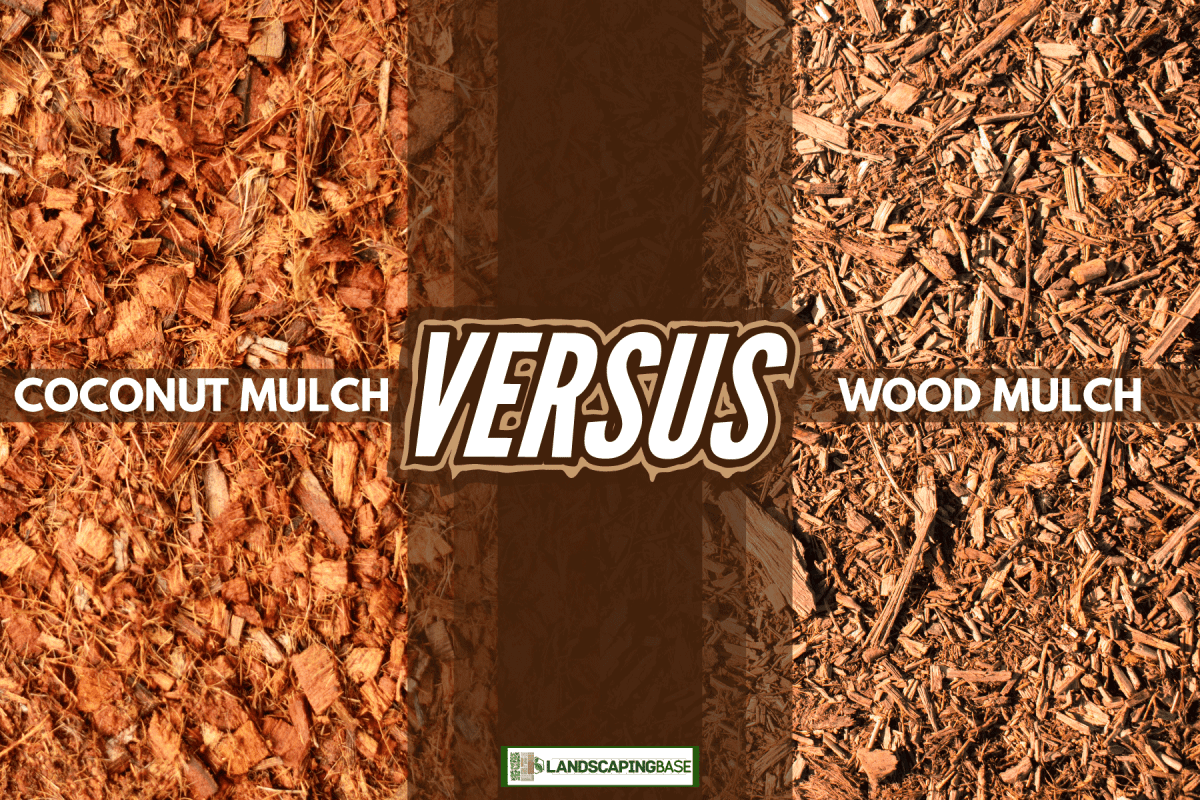
Which type of mulch is better: coconut or wood?
Mulching is putting another layer of material on top of your garden soil for different reasons. It could be to suppress weed growth, control pests, help retain moisture and nutrients in the soil, and prevent erosion. Mulch helps improve the overall health of your plants and enhance the look of your garden.
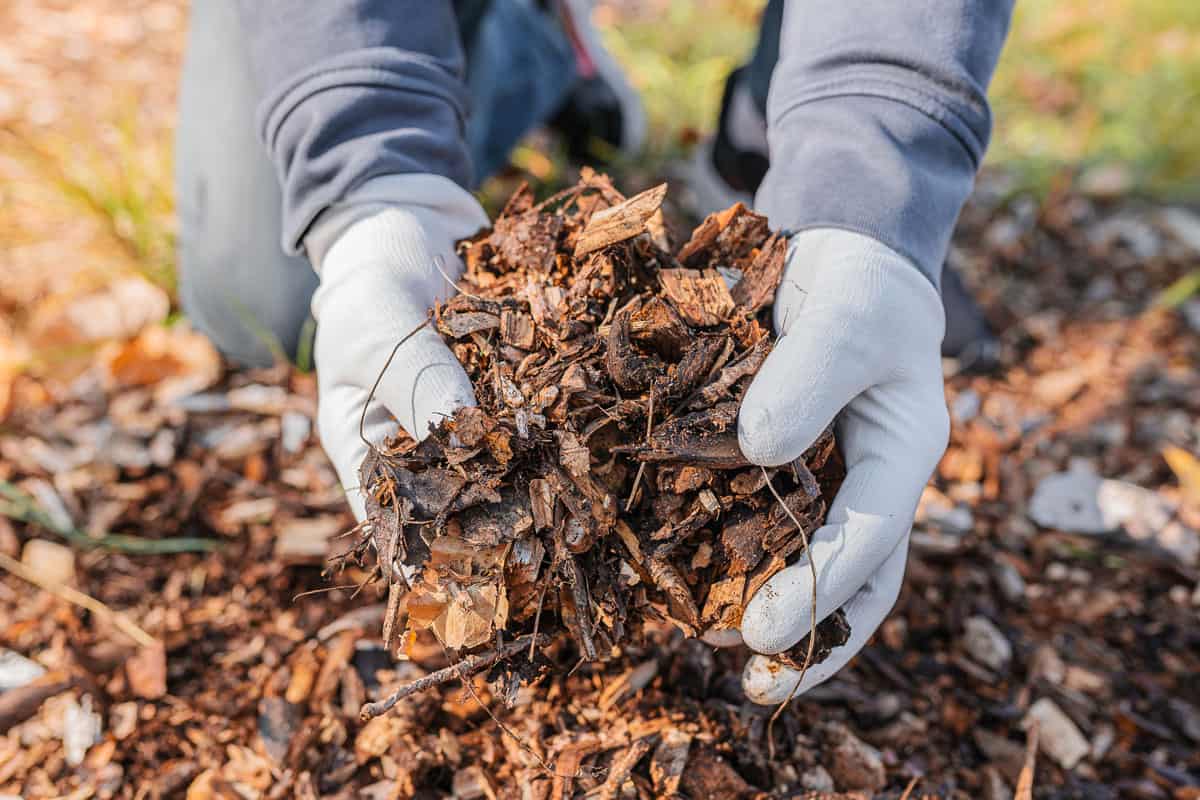
There are two types of mulch - organic and inorganic. Organic mulch is made from dead plant matter while inorganic mulch can be in the form of rocks, gravel, rubber, fabric, or plastic sheeting.
Of course, each one has its advantages and disadvantages which is why you need to understand what each mulch material can do for your garden so that you can make the right choice.
Coconut and wood are both examples of organic mulch which is considered better for the environment since they make use of natural materials.
Coconut mulch is also known as coir or coco mulch. It is made from coconut husks or the fruit's thick outer covering. After all the edible portions of the fruit are consumed, the waste husks are cleaned, separated, and then processed into coconut coir pith, fibers, or chips.
Check out this premium coconut coir pith on Amazon.
Wood mulch or wood chip is made of waste obtained from tree-cutting. It can contain chopped portions of the wood, bark, and even small branches and leaves of the tree. As such, wood mulch would vary depending on the particular tree that was used.
Click this link to find this natural cedar chips on Amazon.
Coconut and wood mulch have particular qualities that you need to consider to decide which of these two would suit your garden or landscaping needs.
Is coconut a good mulch?
We will present below the benefits and drawbacks of using coconut mulch so that you can determine if it is a good mulch.
Advantages of Coconut Mulch
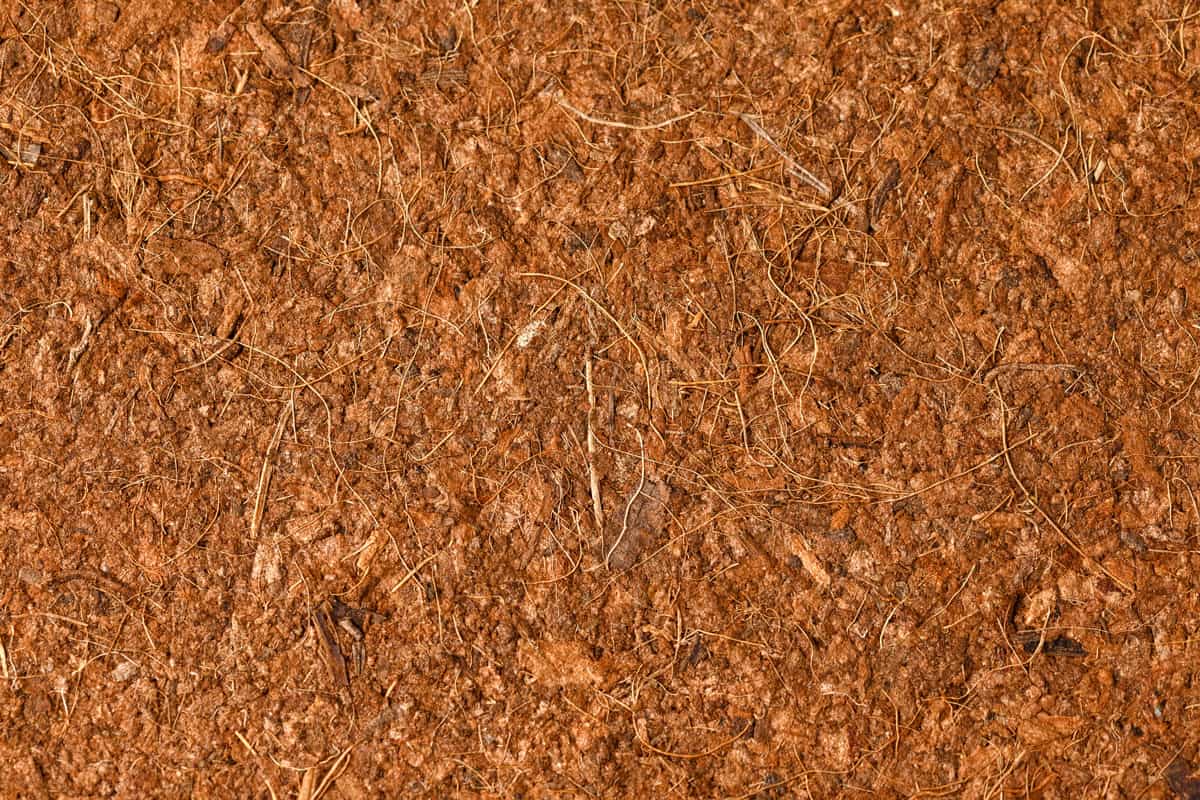
Excellent Water Retention
Coconut husk have a better water retention rate than wood. Experts say it can retain as much as 30% more water than other materials and reduces the use of water in the garden by as much as 50%. It will slowly release water into the soil to keep your plants hydrated.
More Environment-Friendly
Coconut is the more sustainable choice since it doesn't require manufacturers to take down trees just to be able to produce mulch. It finds good use of coconut husk by recycling it instead of letting it just rot and add to environmental waste.
Fire and Pest-Resistant
Coconut mulch is better able to resist fire than wood. This makes it safer to use.
It also won't attract pests to settle on its surface, unlike wood which is the main source of food for termites and other pests.
Lasting Color
Even though it only has a brown color, it doesn't fade and it blends well with your garden or landscaping elements.
Reduces Temperature Fluctuation
Coconut mulch provides good insulation to the soil so that it can keep warm during winter but not too hot during summer.
Rich in Carbon
Coir has high carbon content which makes it very useful in balancing the elements in your compost pile. Kitchen waste and clipped grass have higher nitrogen content so putting the right amount of the carbon-rich coconut fibers into the mix would even out the nutrients in your compost pile.
Almost Neutral pH Level
Coco mulch's pH level is between 5.5 and 6.8. This means it is neither acidic nor too alkaline which is good for most plants. In turn, this mulch isn't recommended for acid-loving plants such as blueberries, azaleas, and rhododendron.
Disadvantages of Coconut Mulch
High Salt Content
Some coconut mulches are soaked in salt water during preparation which is why they have a high salt content afterward. This can significantly reduce the water content in the soil and it could even be toxic to some plants.
Lack Nutrients
Coir has low nutrient content. It lacks calcium, iron, and magnesium. Plants need these to become healthier.
What are the advantages and disadvantages of wood mulch?
Now, let's discuss what you can expect when using wood mulch.
Advantages of Wood Mulch
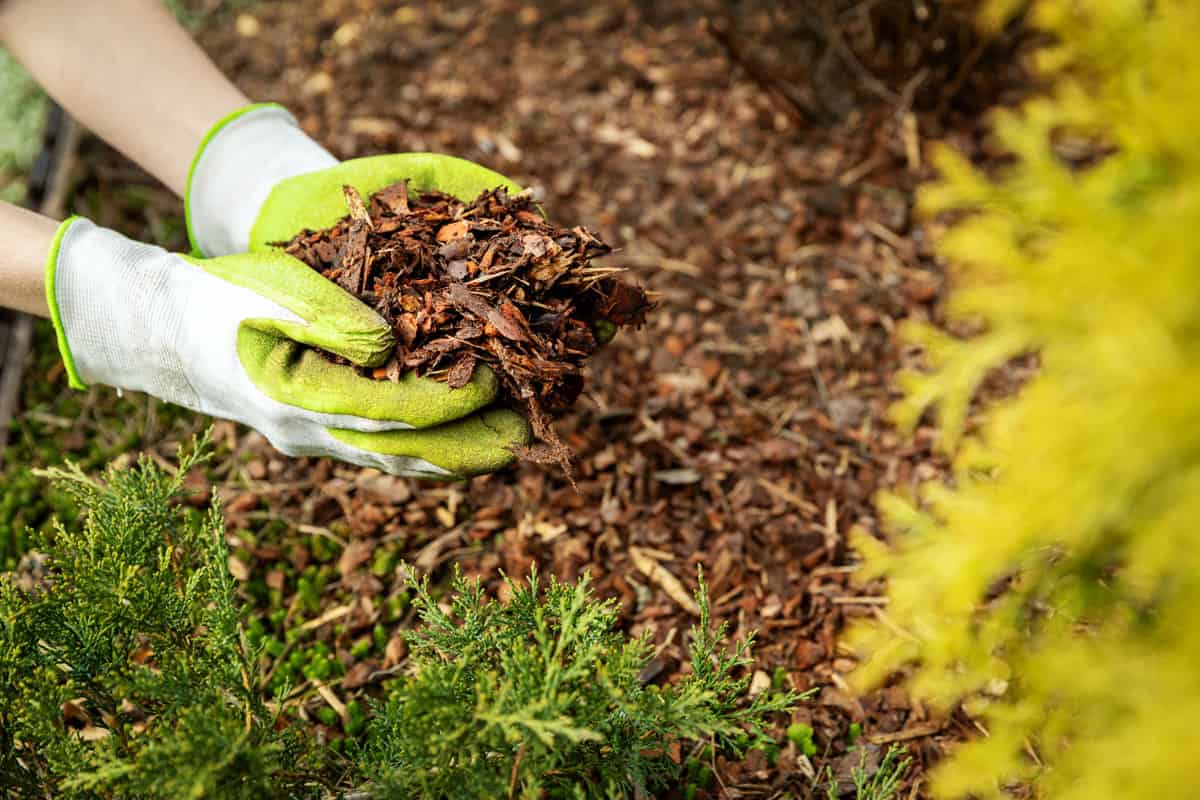
Heavy Material
Wood is quite a heavy material (except when you use wood shavings) which is what you need on your ground cover to prevent the growth of irritating weeds. Because of its mass, it can also provide a good shade for your soil to keep it from getting dry because of the intense heat of the sun.
In winter, it helps prevent frost damage and keeps your plants warm so that they can survive the freezing weather.
Water Retention
Wood is porous so it helps the soil retain water longer. Your plants will love it and you won't have to water them every day.
Repel Pests
This would depend on the tree used to make the mulch. Certain trees have scents that naturally repel some pests.
Make Your Garden Beautiful
Some wood chips are dyed using non-toxic chemicals. These colored mulches can make your plants, flowers, and trees stand out. They add beauty to your garden.
Disadvantages of Wood Mulch
Not Environment-Friendly
Despite being an organic material, the production of wood mulch entails trees being cut down which isn't good for our environment. This is not sustainable since it could lead to deforestation.
Some wood mulch is also dyed to enhance its appearance so that it could complement the overall look of the garden. However, some of the dyes use chemicals that are considered contaminants for the soil, particularly those that contain chromated copper arsenate or CCA.
These contaminants could kill good bacteria found in the soil as well as earthworms and insects that are beneficial to the plant's growth. They are also harmful to people and pets who might have contact with these toxic chemicals.
Mold Growth
Moist wood is conducive to fungal growth. While mold won't necessarily hurt the plant, it would feed on decaying matter in the soil which is a source of nutrition for the plant.
Require Higher Carbon to Nitrogen Ratio
Wood mulch consumes nitrogen as it decomposes. Some plants such as vegetables are sensitive to the reduced nitrogen content in the soil. Thus, you would need to add manure or green leaves to the mulch to retain carbon to nitrogen balance.
This requires additional work and materials which is why some experts are saying you would be better off using manure as your mulch rather than wood.
Termite Problems
Termites love wood and using wood mulch would basically invite these pests into your garden and later on, into your home.
Fire Hazard
Wood can catch fire especially when the weather gets dry and the temperature gets high. You also need to make sure that you don't use your cooking equipment, lighters, and lamps near your wood mulch to avoid causing fire on your property.
Spread Diseases
If the wood that you use carries any disease or fungal infection, it will spread on the soil and affect the plant.
Verdict
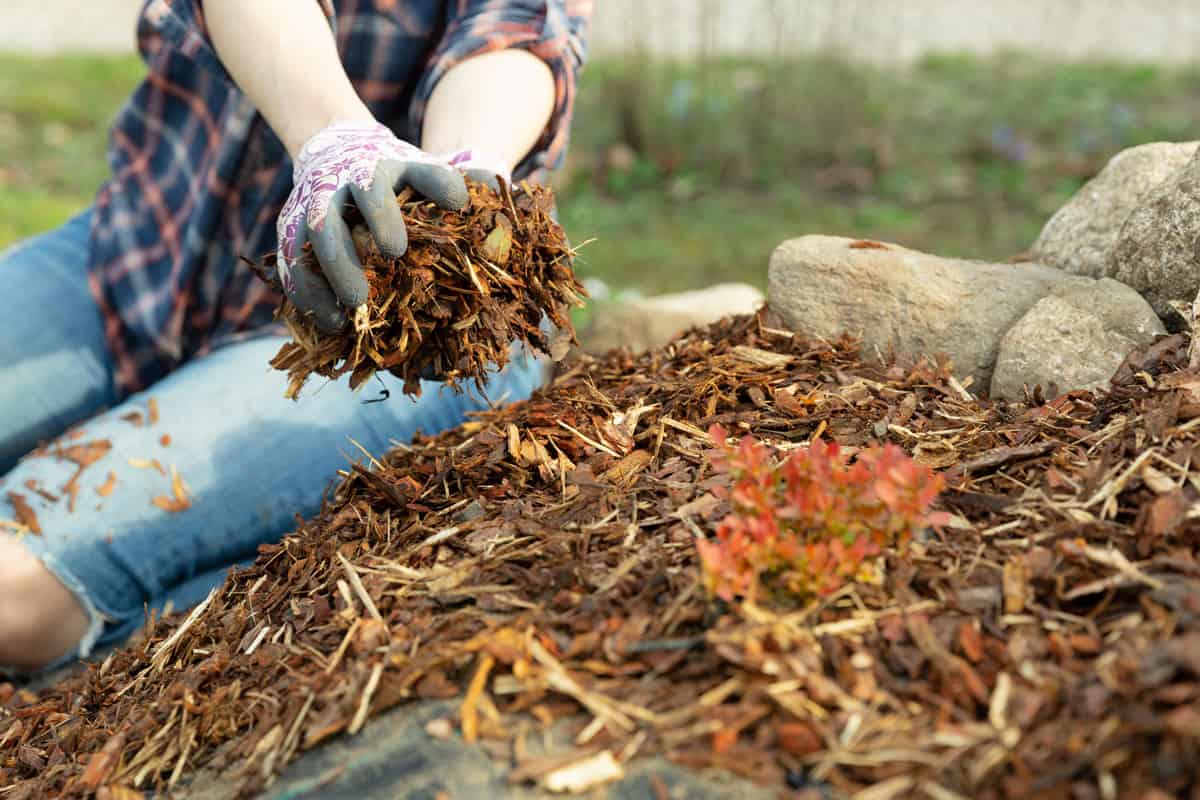
Now that you're better informed about the pros and cons of using coconut and wood mulch, you can make a wise choice.
It is evident that coconut mulch offers more advantages and there are too many drawbacks when using wood. This leads us to conclude that coconut mulch is the better choice between the two.
You can rinse it with clean water to reduce its salt content and you can also use fertilizers to make up for its lack of nutrients.
However, take note that since both are organic mulch, they will eventually break down and would need to be replaced for you to continue enjoying their benefits.
Final Thoughts
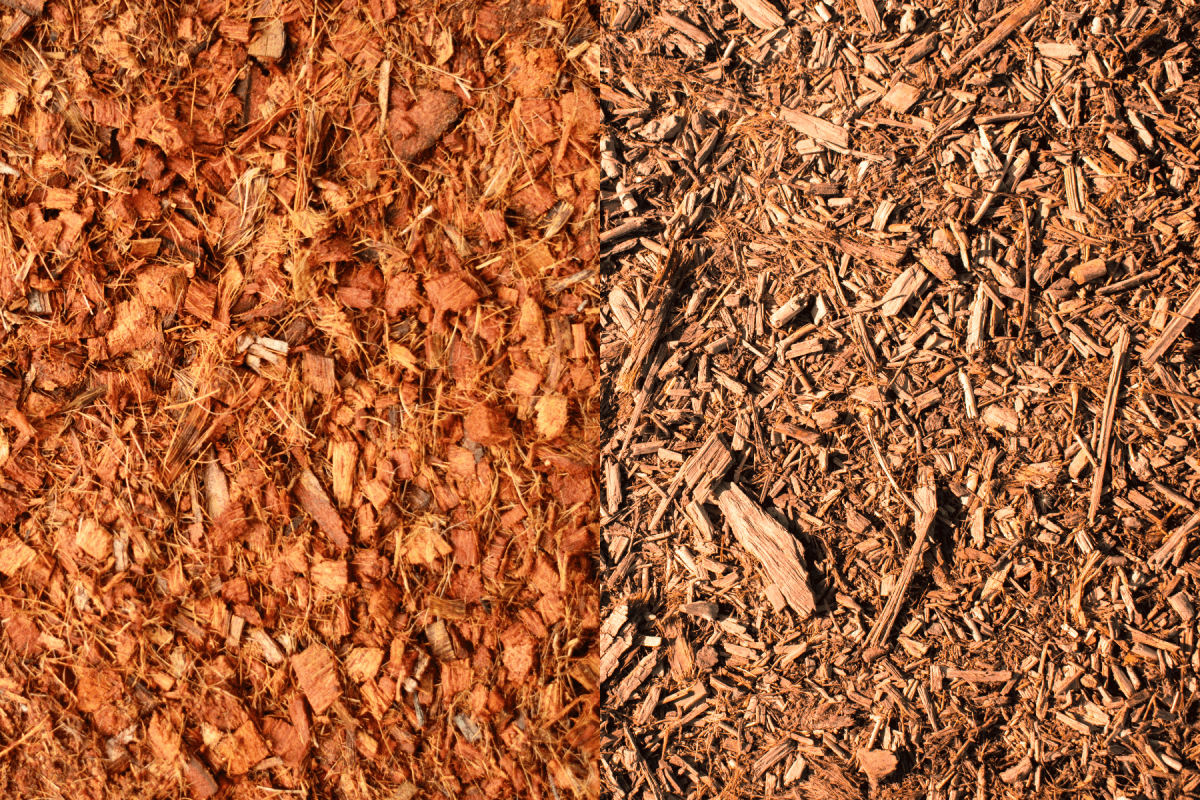
When you have to choose between coconut and wood mulch, coconut is the better choice. You can enjoy more benefits as expected from organic mulch and you can also do something regarding its limitations so that you can maximize its performance.
To know more about mulching, you can read the following posts:



![A man using a portable vacuum to collect dead leaves, Will A Leaf Vacuum Pick Up Mulch? [Can It Remove Leaves From Mulch?]](https://landscapingbase.com/wp-content/uploads/2022/09/Man-using-a-portable-vacuum-to-collect-dead-leaves-600x400.jpg)

